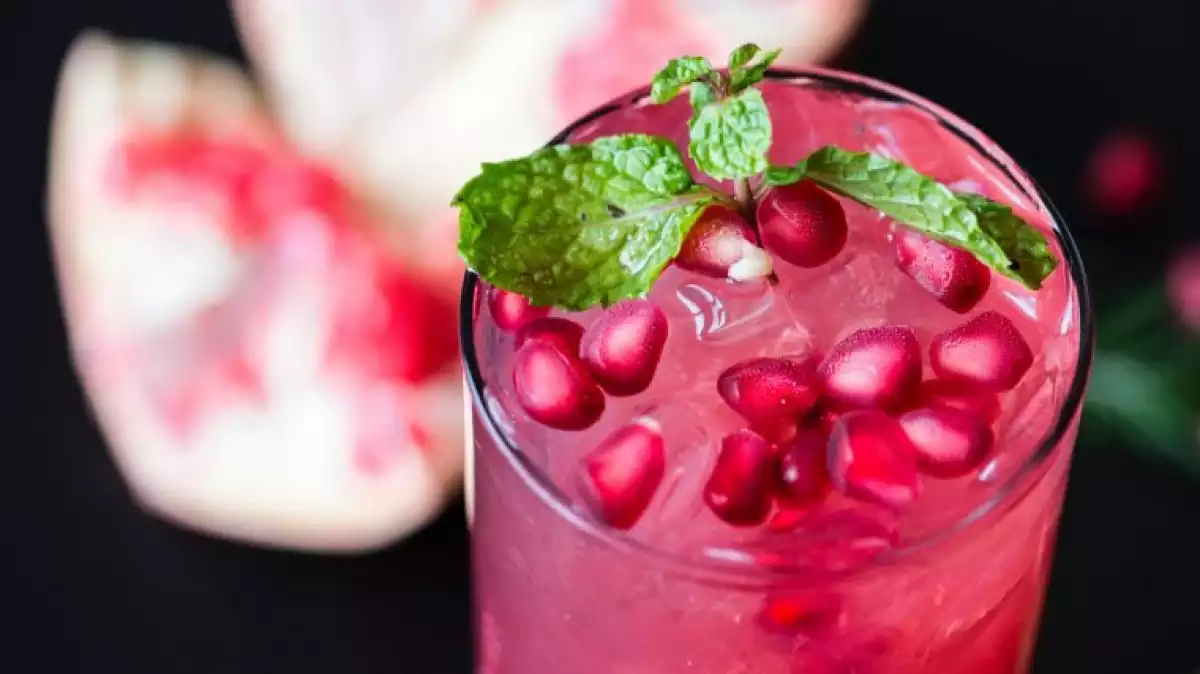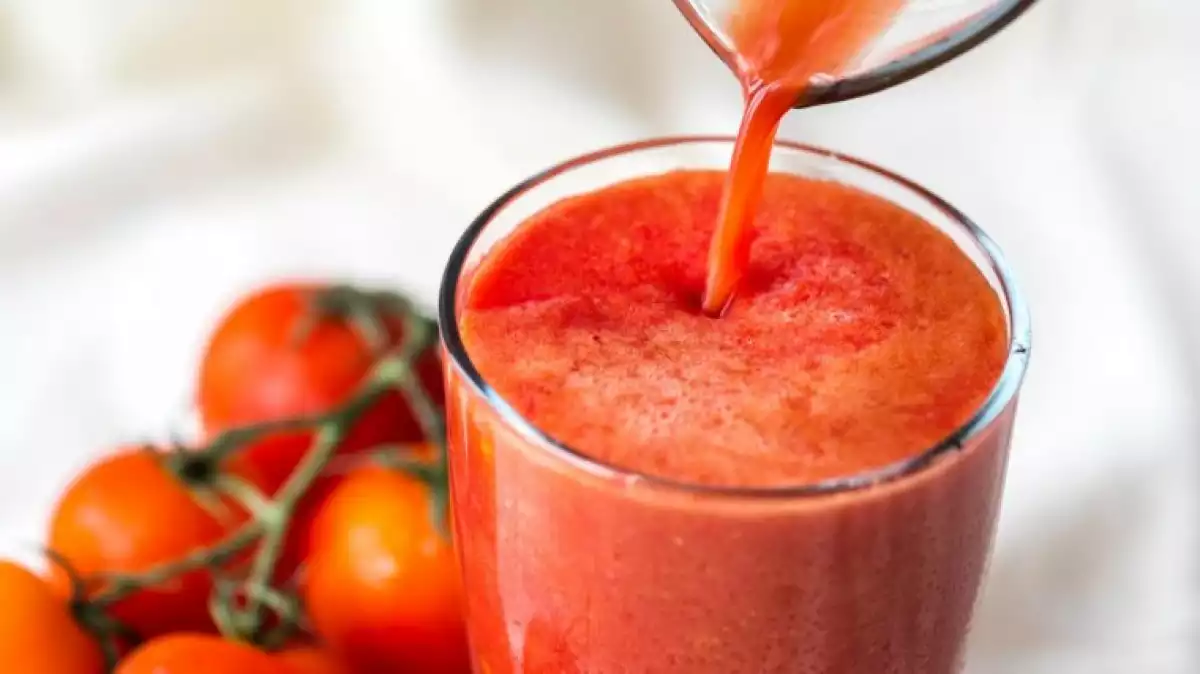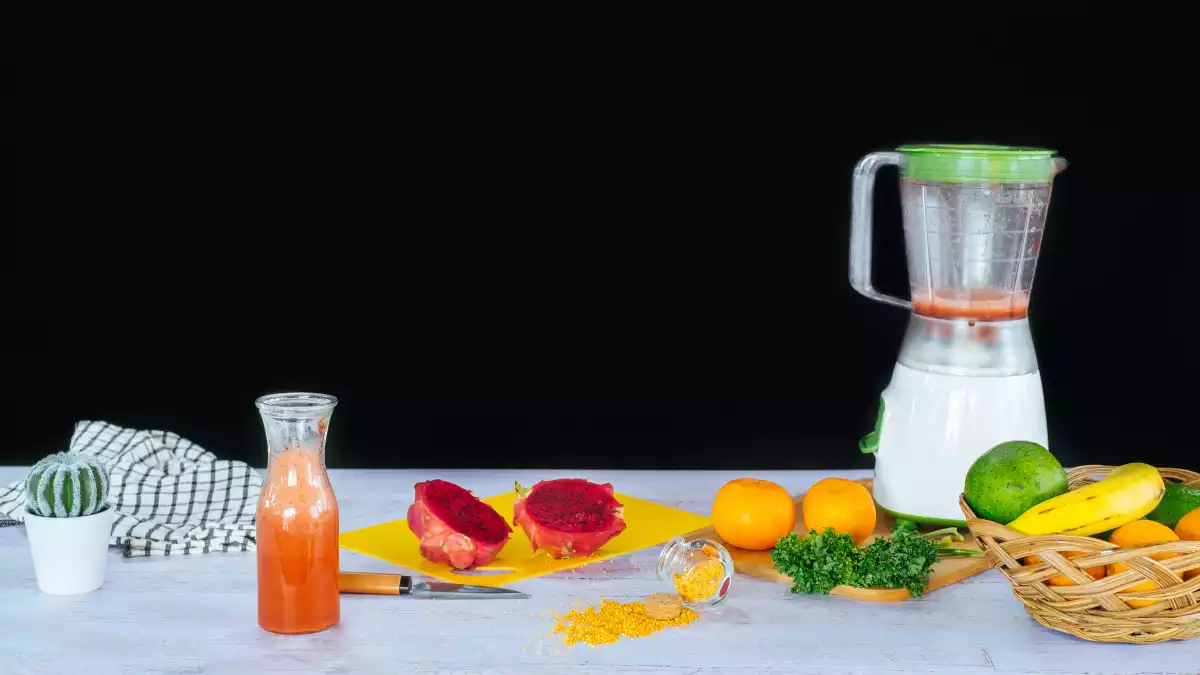Natural juices are drinks extracted from fruits, vegetables or roots, usually by pressure and sometimes by crushing. In other words, it is the liquid that remains from the fruit or vegetable when we squeeze it, and these juices have many properties.
Although juices themselves do not cure, they do keep us healthy. In this article, we explain the benefits of natural, homemade juices, as well as the nutrients they provide depending on the vegetable and fruit used.
The importance of having fruit and vegetable juice
Due to the number of nutrients they provide us with, fruit and vegetables are very important food groups if we want to follow a balanced diet. But why consume them in the form of juice instead of eating them in their natural form? Besides this being an exceptionally refreshing and practical option, juices ease the absorption of fruit nutrients. Thus, the consumption of natural juices helps us take advantage of vitamin complexes.
As they are easily absorbed, juices are especially recommended for people who have poor digestion or difficulty swallowing and chewing (for this it is important to strain the juices), for example, in the case of young children. Although, as we will see later, there are some fruits whose consumption is not recommended in breastfed babies. On the other hand, there are two types of juices: homemade (natural) and processed — the latter in liquid form or nectar -thicker and with a higher concentration of refined sugar.
The difference between one kind and the other is their elaboration process: while natural juices are consumed straight after squeezing, processed juices have gone through a process in which they have added sugar and preservatives to them, with the risk of reducing the fundamental properties of the fruit. Finally, there are many juices made not only from fruits but also from vegetables that have important properties due to the chlorophyll content. Likewise, roots such as eggplant (beet), and also plant extracts such as aloe vera (added in addition to any fruit juice) are popular for their health benefits.
General properties of juice
As we have previously said, natural fruit juices are more nutritious and healthy than processed juices. And, although they are not medicine, natural juices are an essential source of different nutrients. Let's look at some of their general properties (regardless of the fruit or vegetable used):
They have purifying, depurative or detox effects (it helps us eliminate impurities from our organism; especially when mixing it with leafy greens).
They have low sugar concentration (which helps lose weight).
Their consumption tends to reduce appetite, which reduces the intake of solid food.
They provide an important amount of purified water.
They help the formation of red blood cells (especially those with green leaves, because they have chlorophyll).
They provide iron (which is essential to keep the tissues).
They reduce excessive blood sugar (which is helpful for weight loss).
They eliminate bad smells (mouth and armpits).
They improve nasal drainage (especially leafy green ones, due to chlorophyll).
They temporarily relieve inflammations (in the throat).
They favor wound healing (especially leafy green ones).
They provide salts, vitamins, and minerals.
They have active principles that strengthen the organism and prevent some diseases.
To cover deficiencies (e.g., tomato juice, green leaves, and seeds)

Properties and benefits depending on the fruit or vegetable used
Depending on the specific fruit we use, natural fruit juices can be used for one thing or another. For instance, some are more useful for weight loss, while others are used as detox juice, i.e., as a detoxifying substance made of fruits and vegetables.
Besides these two, homemade juices have many more benefits for our body. But they cannot do everything on their own: they complement other important elements such as balanced diet, water consumption or physical exercise. In the following lines, we will tell you about the properties and benefits of 10 different fruit and vegetable juices.
1. Orange juice
Orange juice can be consumed as a base liquid, this is, as the substance ready to mix with other fruits. It contains vitamin C, which is essential for our skin, tendons, cartilages, and blood vessels. Together with iron, it also prevents gum bleeding and anemia. To boost the dose of vitamin C, we can add guava, mango, grapefruit or papaya. In addition, the orange is a citrus fruit, which helps to generate substances of vitamin B complex, whose deficiency alters the nervous system and produces alterations in the skin.
This property is not exclusive for orange juice, but other juice made out of citrus fruits and fresh vegetables, wheat, barley, figs, strawberries, and blackberries. As it is a very versatile fruit, it is advisable to have some in the morning. To achieve energizing effects, it can be mixed with tomato, celery, and cucumber.
On the other hand, in order to lose weight, it is advisable to have parsley, grape and pineapple juice on an empty stomach -only for breakfast-; and the next day a glass of orange juice with the juice of six radishes -to drink before each meal.
100 grams of oranges provide us with 46 calories, more or less. Breastfed babies should not have this juice, because oranges have some substances that could cause allergies or predisposition to them. From the 6th month, more or less, they can start taking porridges or vegetable protein juices. Strawberry juice is also not recommended for babies.
2. Pomegranate juice
Pomegranate juice provides us with essential concentrations of minerals such as sodium, magnesium, potassium, sulfur, and phosphorus. It also has vitamin A, B, and C. Specifically, vitamin A is an essential nutrient for sight, while vitamin C is vital for the functioning of the nervous system; and vitamin B for the immune system and the regeneration of tissues.
In calories, 100 grams of pomegranate provides us with around 53 kcal which combines perfectly well with orange juice. Pomegranate juice is recommended to complement treatments for digestive diseases, such as diarrhea; and also circulatory system diseases, such as anemia.
3. Watermelon juice
Watermelon juice is also recommended to complement weight loss diets because it replaces nutrients of a lot of solid food. Also because it provides very few calories (20 in 100 grams) It also contains vitamin A, an essential nutrient for sight, the reproductive system and the composition of membranes; as well as a high concentration of water and minerals, such as silicon, calcium, iron, phosphorus, and iodine. It is an excellent complement for treatments for kidneys or diseases related to the production of red blood cells. It does not get along with melon or milk.

4. Tomato juice
The tomato is the fruit of an herbaceous plant from Central and South America. In juice, this fruit provides us with vitamins such as folic acid, biotin, and vitamin C, with a low dose of calories (around 14 per 100 grams). It provides us with minerals such as phosphorus, potassium, chlorine, magnesium, and sulfur.
Tomato juice is good for the end of the day, as it is easy to digest, has little calories and also helps eliminate water. In addition, it is used as a complement for cardiovascular diseases treatment.
5. Grapefruit juice
Grapefruit provides us with complex B vitamins, and as it is also a citrus fruit, it also has complex C vitamins. On the other hand, it is an important source of minerals such as potassium, phosphorus, calcium, and iron. 100 grams of grapefruit provide us with around 30 calories, and it is a great refreshing and appetizer drink.
The consumption of grapefruit juice is recommended before meals. Also, this juice is recommended especially as a detox juice, and to lose weight, as it has depurative and diuretic effects. It is especially useful for detoxification of the liver and kidneys (like papaya). It combines well with other citrus fruits, whose mixture favors cold recovery.
6. Lemon juice
Lemon juice has vitamins, sugars, and minerals. The concentration of 100 grams of this citrus fruit of the green lemon tree provides 23 calories, while the yellow one offers 35 calories.
As it is a citrus fruit, it also provides us with vitamins C and B and contains minerals such as calcium, magnesium, phosphorus, and even iron. It combines well with pineapple, artichoke, celery, parsley, and carrot juice. In fact, in different concentrations, lemon juice is an excellent complement to almost any food and drink.
7. Beet juice
Beetroot is also known as a beet. It is not a fruit, but a root that has many minerals, such as potassium, chlorine, magnesium, iodine, iron, and fluorine. Besides, it contains high concentrations of fiber and vitamin A, which, as we previously mentioned, is very important for sigh and cell membrane structures (therefore, to maintain the tissues and the proper functioning of the organs). As for their calories, 100 grams of beet provide 42 kcal on average.
8. Carrot juice
Carrot juice is very good as a base liquid. It includes vitamin A, an essential nutrient for eyesight, the reproductive system and the composition of membranes (the same as broccoli, asparagus, melon, peach, and papaya). It also contains folic acid (vitamin B9), which is essential for the maturation of proteins and hemoglobin.
As for minerals, it provides potassium, calcium, magnesium, phosphorus, and chlorine. To a lesser extent, it contains iron, zinc, and copper. With this, it helps eliminate toxins, stimulates the flow of bile and prevents anemia. This juice can also have laxative effects. A 100g portion of carrot provides approximately 35 calories. It combines well with orange, beetroot, celery, apple, lime, cucumber, blackberry, and spinach.

9. Cranberry juice
Cranberry juice is also suitable as a base liquid. It has folic acid, vitamin C and some complex B vitamins. It contains minerals such as potassium, magnesium, calcium, phosphorus, and sodium. 100 grams of cranberry has around 15 calories. Its effects are mainly astringent, so it can complement anti-inflammatory and healing treatments. It is also used as an antiseptic of the urinary tract and to complement diarrhea and colitis treatments.
10. Apple juice
Apple juice is also useful as a base liquid (as grapes, pineapple, and raspberry). It has properties such as cellulose and sugars: 100 grams of apple can provide us with approximately 65 calories, so it is an essential source of energy. It also contains minerals such as silicon, phosphorus, magnesium, potassium, and sodium. For the same reason, it is a juice that can favor the activation of the liver and the flexibility of muscles and tissues.
- This article about "Natural Fruit and Vegetable Juice" was originally published in Spanish in Viviendo La Salud
References
Bielefeld, J. (2004). Zumos y bebidas saludables. Hispano Europea: España.
Cruz, A. (2007). Salud con jugos. Selector: México.
Murray, G. (2018). El poder curativo de los jugos / The healing power of juices. Selector: México.
Ortiz, J.L. (2010). Aloe Vera. La planta del futuro. AuthorHouse: USA.
